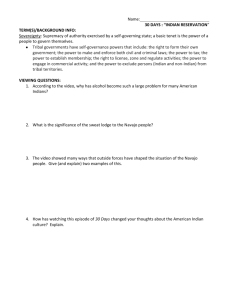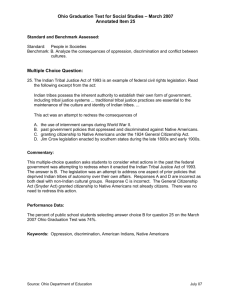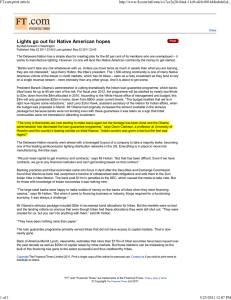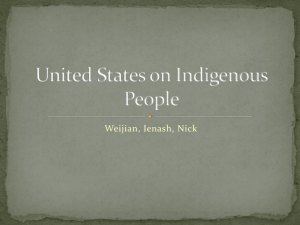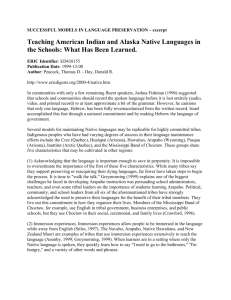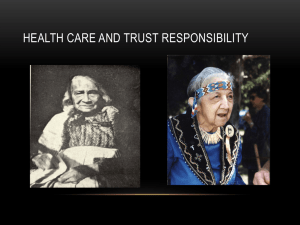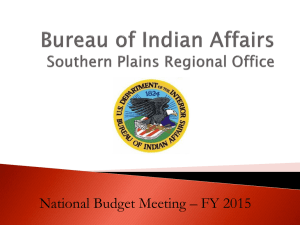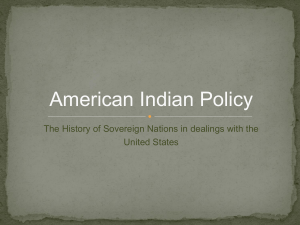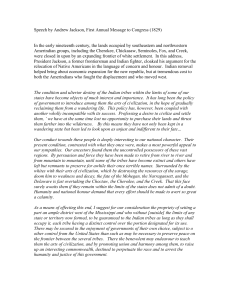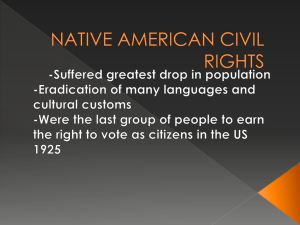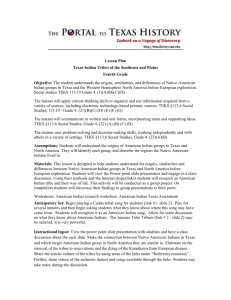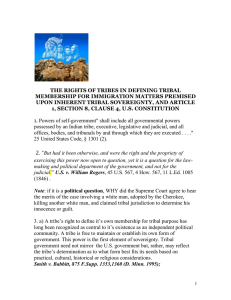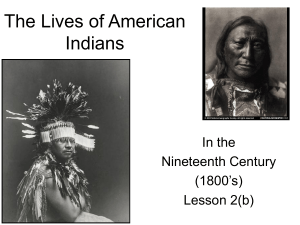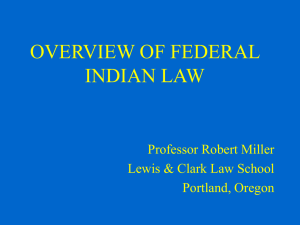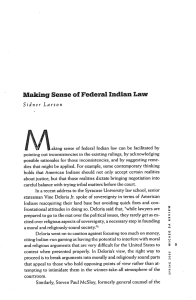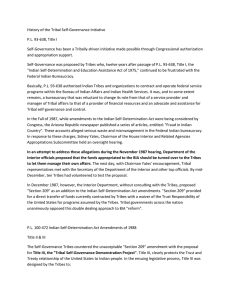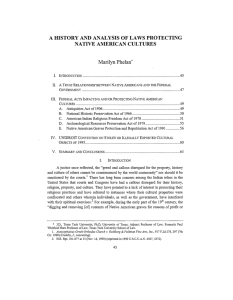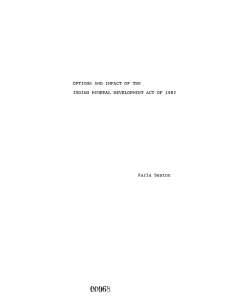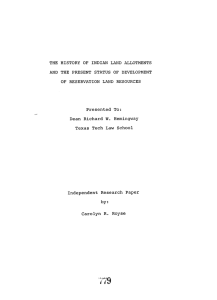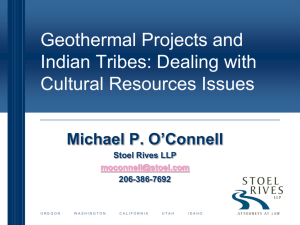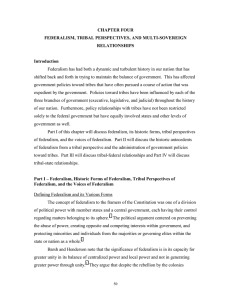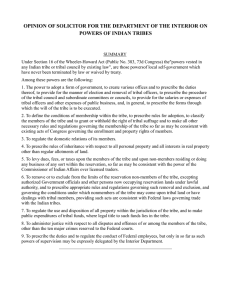Application of Federal Laws to Tribal Lending
advertisement
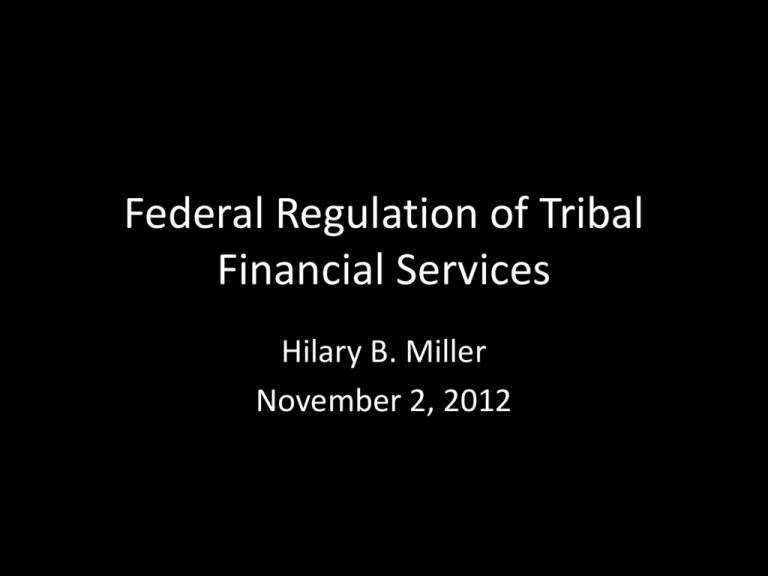
Federal Regulation of Tribal Financial Services Hilary B. Miller November 2, 2012 Does Dodd-Frank Apply to Tribes? • Section 1027 defines “state” to include tribes • BUT: no clear intent to exclude tribes from definition of “covered person” • Quaere whether a “tribe” can be a “state” for one purpose and a “covered person” for another • Strong evidence of Congressional policy to regulate financial services • CFPB position Tuscarora-Coeur d’Alene Cases • Courts will look to established principles of Indian law, including those governing when federal laws of general application apply to tribes. • Under the so-called Tuscarora-Coeur d’Alene line of cases, a general federal law “silent on the issue of applicability to Indian tribes will . . . apply to them” unless: “(1) the law touches ‘exclusive rights of selfgovernance in purely intramural matters’; (2) the application of the law to the tribe would ‘abrogate rights guaranteed by Indian treaties’; or (3) there is proof ‘by legislative history or some other means that Congress intended [the law] not to apply to Indians on their reservation . . . .’” • Because general federal laws governing consumer financial services do not affect the internal governance of tribes or adversely affect treaty rights, courts may determine that these laws apply to TLEs. • The view that federal laws of general application extend to Indian country is confirmed by both leading treatises on Indian law. Citations • • • Federal Power Comm’n v. Tuscarora Indian Nation, 362 U.S. 99, 116 (1960) (“a general [federal] statute in terms applying to all persons includes Indians and their property interests”). Donovan v. Coeur d’Alene Tribal Farm, 751 F.2d 1113, 1116 (9th Cir. 1985), applied the Occupational Safety and Health Act, 29 U.S.C. § 651, to a tribal government workplace. See also, generally, San Manuel Indian Bingo & Casino, 475 F.3d 1306 (D.C. Cir. 2007) (construing the National Labor Relations Act, 29 U.S.C. § 151, as applying to tribe); Smart v. State Farm Ins. Co., 868 F.2d 929 (7th Cir. 1989) (applying Employee Retirement Income Security Act, 29 U.S.C. § 1132, to group insurance policy issued to Indian-owned hospital); Phillips Petroleum Co. v. United States Environmental Protection Agency, 803 F.2d 545, 547 (10th Cir. 1986) (Safe Drinking Water Act, 42 U.S.C. § 300f, may be imposed in Indian country); Florida Paraplegic Ass’n v. Miccosukee Tribe of Indians, 166 F.3d 1126, 1127, 1129-30 (11th Cir. 1999) (applying Americans with Disabilities Act, 42 U.S.C. § 12181, to a tribal restaurant); Confederated Tribes of Warm Springs Reservation of Oregon v. Kurtz, 691 F.2d 878 (9th Cir.1982), cert. denied, 460 U.S. 1040 (1983) (federal taxes apply to tribal activities even without a “clear” expression of applicability). Cohen’s Handbook of Federal Indian Law (Nell Jessup Newton et al., eds.., rev. ed. 2005) at 131and § 10.01(2)(a) at 775 & n.6; William C. Canby, Jr., American Indian Law in a Nutshell (4th ed. 2004) at 282-86.
